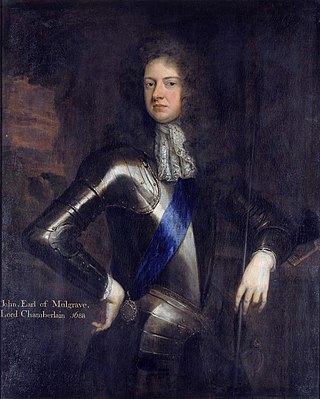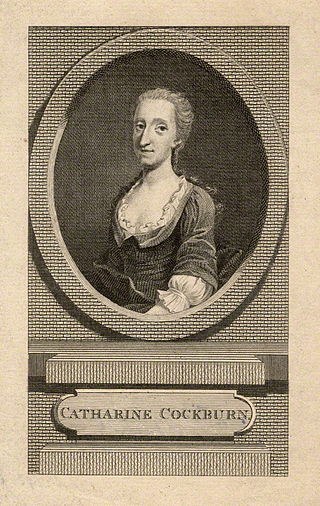Daniel Kenrick | |
|---|---|
 | |
| Nationality | English |
| Occupation(s) | Physician and poet |
Daniel Kenrick (fl. 1685), also called Daniel Kendrick, was an English physician and poet.
Daniel Kenrick | |
|---|---|
 | |
| Nationality | English |
| Occupation(s) | Physician and poet |
Daniel Kenrick (fl. 1685), also called Daniel Kendrick, was an English physician and poet.
Kenrick was the son of Samuel Kenrick of Leigh, Gloucestershire. He was born about 1652, and entered as a servitor at Christ Church, Oxford, on 31 March 1666, whence he proceeded B.A. 1669, and M.A. 1674. At the age of thirty-two, when his portrait was engraved by Robert White, Kenrick was practising as a doctor at his native town of Worcester, and was much esteemed there as ‘a man of wit and a jolly companion.’ Several poems by ‘Dr. Kenrick’ appear in ‘The Grove, or a Collection of Original Poems, by W. Walsh, Dr. J. Donne, Mr. Dryden, Mr. Butler, Sir John Suckling, and other eminent hands,’ London, 1721. Kenrick's ‘talents,’ it is declared in the preface, ‘seem equal in panegyrick, satire, and lyric. There is a fire and sprightliness of thinking which runs through all his copies, and to this perhaps he owed that haste in his writing which made him sometimes negligent of Harmony both in Rimes and Numbers.’ We gather from the same source that Kenrick was on terms of intimacy with Mrs. Behn and Purcell the musician, and that he died before the publication of ‘The Grove’ in 1721. There are some verses signed by Kenrick in the fifth vol. of Dryden's ‘Miscellany Poems,’ entitled ‘Upon a Giant Angling.’ These, however, are said by Granger, ‘on the information of Dr. John Wall,’ to have been freely borrowed from a work called ‘The Mock Romans,’ London, 1653, while in Pratt's ‘Cabinet of Poetry’ (1808) these same lines are assigned to Dr. William King. The preface to ‘The Grove’ declares that Kenrick took degrees in divinity as well as physic. He may therefore be identical with Daniel Kenrick, D.D., who preached the assize sermon at Worcester in 1688.

John Dryden was an English poet, literary critic, translator, and playwright who in 1668 was appointed England's first Poet Laureate.

Sir William Davenant, also spelled D'Avenant, was an English poet and playwright. Along with Thomas Killigrew, Davenant was one of the rare figures in English Renaissance theatre whose career spanned both the Caroline and Restoration eras and who was active both before and after the English Civil War and during the Interregnum.
This article contains information about the literary events and publications of 1772.

John Sheffield, 1st Duke of Buckingham and Normanby, was an English poet and Tory politician of the late Stuart period who served as Lord Privy Seal and Lord President of the Council. He was also known by his original title, Lord Mulgrave.

Sir Richard Blackmore, English poet and physician, is remembered primarily as the object of satire and as an epic poet, but he was also a respected medical doctor and theologian.
Thomas Rymer was an English poet, critic, antiquary and historian. His lasting contribution was to compile and publish 16 volumes of the first edition of Foedera, a work in 20 volumes conveying agreements between The Crown of England and foreign powers since 1101. He held the office of English Historiographer Royal from 1692 to 1714. He is credited with coining the phrase "poetic justice" in The Tragedies of the Last Age Consider'd (1678).

Thomas Creech was an English translator of classical works, and headmaster of Sherborne School. Creech translated Lucretius into verse in 1682, for which he received a Fellowship at Oxford. He also produced English versions of Manilius, Horace, Theocritus, and other classics.
Charles Gildon, was an English hack writer who was, by turns, a translator, biographer, essayist, playwright, poet, author of fictional letters, fabulist, short story author, and critic. He provided the source for many lives of Restoration figures, although he appears to have propagated or invented numerous errors with them. He is remembered best as a target of Alexander Pope's in both Dunciad and the Epistle to Dr. Arbuthnot and an enemy of Jonathan Swift's. Gildon's biographies are, in many cases, the only biographies available, but they have nearly without exception been shown to have wholesale invention in them. Because of Pope's caricature of Gildon, but also because of the sheer volume and rapidity of his writings, Gildon has come to stand as the epitome of the hired pen and the literary opportunist.

Jacob Tonson, sometimes referred to as Jacob Tonson the Elder (1655–1736), was an eighteenth-century English bookseller and publisher.

William Walsh of Abberley Hall, Worcestershire was an English poet and critic and a Whig politician who sat in the English and British House of Commons from 1698 to 1708.

Catharine Trotter Cockburn was an English novelist, dramatist and philosopher who wrote on various subjects, including moral philosophy and theology, and maintained a prolific correspondence.

Albion and Albanius is an opera, closely resembling a French tragédie en musique, by Louis Grabu with an English libretto by John Dryden.

Christopher Pitt was an English clergyman poet; he was also a translator whose performance was esteemed in his day.
Nationality words link to articles with information on the nation's poetry or literature.
David Martin, was a learned French Protestant theologian.

The Hind and the Panther: A Poem, in Three Parts (1687) is an allegory in heroic couplets by John Dryden. At some 2600 lines it is much the longest of Dryden's poems, translations excepted, and perhaps the most controversial. The critic Margaret Doody has called it "the great, the undeniable, sui generis poem of the Restoration era…It is its own kind of poem, it cannot be repeated ."
Walter Moyle (1672–1721) was an English politician and political writer, an advocate of classical republicanism.
Richard Leigh (1650–1728) was an English poet of gentry stock, whose work is classed as metaphysical poetry. He engaged in a pamphlet dispute with John Dryden.
Simon Ford (1619?–1699), was an English divine.
Knightly Chetwood was an Anglican priest, poet, and translator.
![]() This article incorporates text from a publication now in the public domain : Seccombe, Thomas (1892). "Kenrick, Daniel". In Lee, Sidney (ed.). Dictionary of National Biography . Vol. 31. London: Smith, Elder & Co.
This article incorporates text from a publication now in the public domain : Seccombe, Thomas (1892). "Kenrick, Daniel". In Lee, Sidney (ed.). Dictionary of National Biography . Vol. 31. London: Smith, Elder & Co.